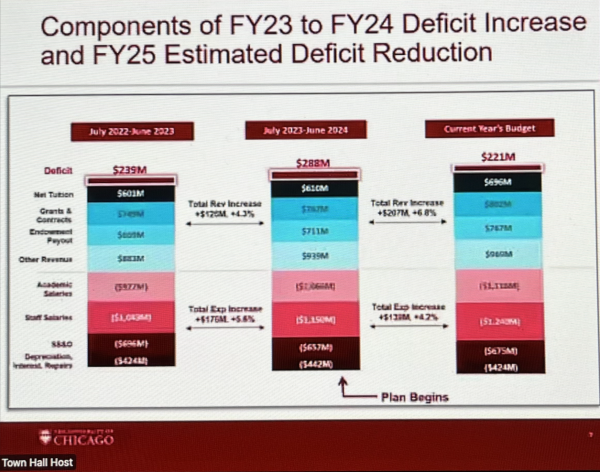University of Chicago's $221 Million Deficit Signals Broader Fiscal Strain in Higher Education

Chicago, IL – The University of Chicago, a globally recognized academic institution, is navigating a significant financial challenge, reporting a budget deficit that reached $288 million in fiscal year 2024, subsequently reduced to $221 million for the current budget cycle. This situation has drawn attention to the broader fiscal health of the higher education sector, particularly the vulnerability of smaller institutions. As commentator Razib Khan stated in a recent tweet, "wow. this is shocking. the university of chicago is one of the premier institutions in this country. this should be a major warning sign about the fiscal health of higher ed; harvard will be fine but a lot of smaller liberal arts colleges are probably hosed."
The university's financial pressures stem from an aggressive expansion strategy over the past two decades, aimed at competing with wealthier peer institutions. This growth was largely financed through borrowing, leading to a substantial debt load. According to Professor Clifford Ando of the University of Chicago, in 2022, approximately 85% of the university's net undergraduate tuition revenue was allocated to servicing its debt. The institution also made a strategic decision to implement need-blind financial aid before its endowment reached the scale of some of its Ivy League counterparts, further contributing to its financial commitments.
In response, the University of Chicago has initiated a four-year budget plan designed to eliminate the deficit by 2028. This plan includes comprehensive cost-cutting measures, such as reductions in central administrative expenses and salary freezes, alongside efforts to boost revenue through expanded master's and non-degree programs, and increased philanthropic efforts. These proactive steps appear to be yielding some positive results, with Fitch affirming the university's credit rating at "AA+" and revising its outlook from "negative" to "stable" in May 2024.
While elite institutions like the University of Chicago possess the brand recognition and fundraising capacity to address such challenges, the broader landscape for U.S. higher education remains precarious. Many smaller, tuition-dependent private colleges are facing an intensifying crisis due to declining undergraduate enrollment, exacerbated by a projected "demographic cliff" of fewer high school graduates. These institutions often lack the diversified revenue streams and substantial endowments that provide a buffer against financial headwinds.
The rising costs of operation, coupled with increasing student debt and a shifting public perception of the value of a traditional four-year degree, intensify the pressure on these colleges. Many are struggling to attract and retain students, leading to program cuts, layoffs, and a growing number of closures and mergers across the sector. The financial challenges at a prominent university like Chicago underscore a systemic issue, highlighting the urgent need for adaptation and innovation across all tiers of higher education to ensure long-term sustainability.